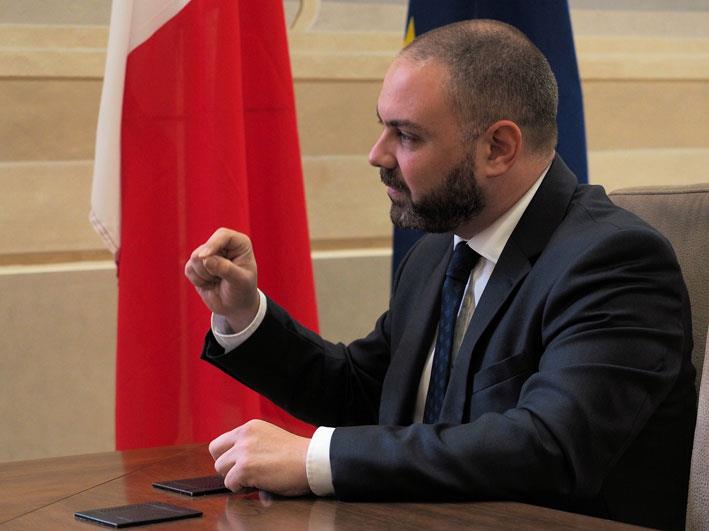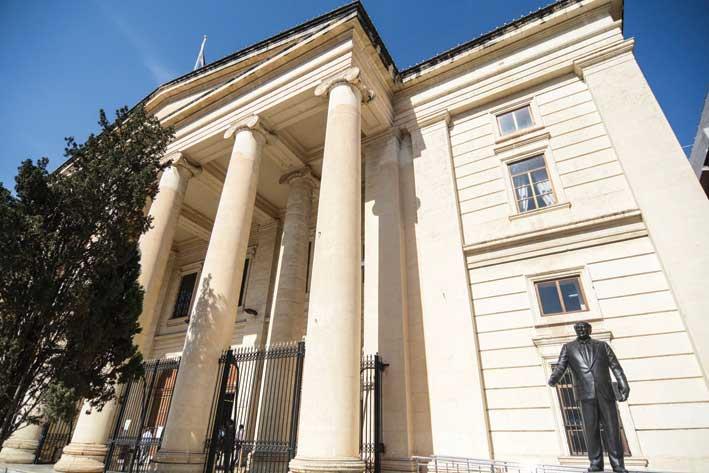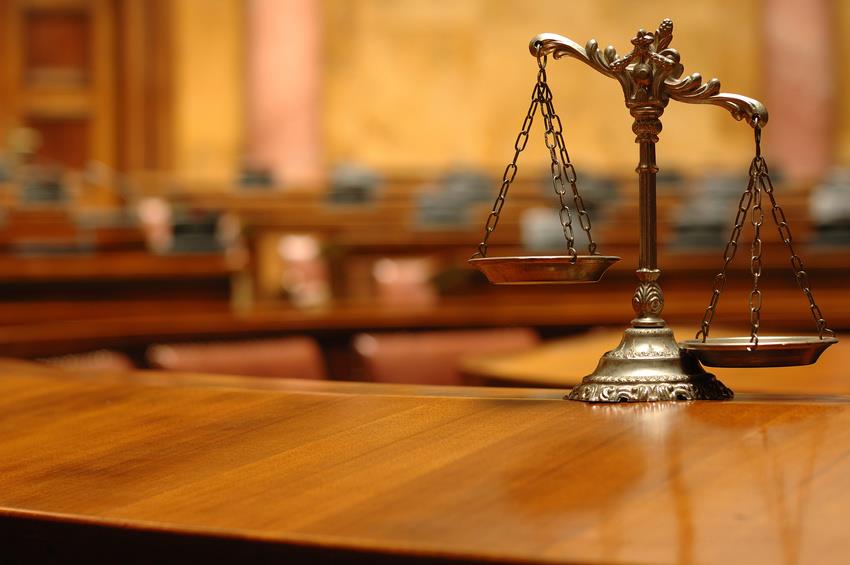Justice Minister Owen Bonnici says that the government will no longer be involved in the appointment of judges and magistrates. Instead, the Judicial Appointments Committee will be reformed to do so independently.
“Currently, the committee is tasked with vetting applicants and drawing up a shortlist, from which the executive then appoints judges and magistrates," Minister Owen Bonnici said in an interview with The Malta Independent on Sunday. "Once the system is reformed, however, the government will be taken out of the picture entirely.” The minister describes the reform as “a step forward; a step in the right direction.”
The chief justice, auditor general and ombudsman all serve on the committee, among others. Candidates applying for judicial appointments must have practised law for 12 years or served as a magistrate for seven, in addition to being of good character.
Prior to earlier reforms carried out by the government, judges and magistrates were directly appointed by the prime minister. The minister says that while including the committee in the selection process was seen by the Venice Commission as a step in the right direction, the government was advised that more had to be done to ensure the judiciary’s independence. “We accept that view and will now be going a step further – allowing the judiciary to appoint its own members.”
Asked whether political interference was currently an issue in the appointment of magistrates and judges, Minister Bonnici said: “In reality, political ties tend to be cast aside by members of the judiciary. That said, the Venice Commission has suggested decoupling the executive and the judiciary, and that is what we are going to do. I hope it works.” Asked how confident he was that it would work, the minister said: “I don’t know... I believe there need to be checks and balances. The Judicial Appointment Committee will be empowered to appoint judges and magistrates. Its members do not contest elections and, unlike politicians, can’t be kicked out of office after five years.”
While insisting that the judiciary had no reason to fear government reprisal, he said that the reform would help make the possibility of this happening even more remote. “The new system will bring with it many benefits, but once thing some people underestimate is the need for checks and balances between state organs.”

‘We need to reform the office of the Attorney General’
Asked whether he thought Attorney General Peter Grech’s position was still tenable, Minister Bonnici said that a distinction had to be made between a position no longer being tenable and a reform which needed to be carried out. He said that the attorney general’s position was still tenable as he had acted within the boundaries of the law. “We also need to reform the Office of the Attorney General to decouple the role of legal adviser to the government from that of public prosecutor. This needs to be done as smoothly as a possible; we don’t want to create any earthquakes,” he said.
Bonnici explained that the Venice Commission had made the same recommendation but also suggested that the prosecutor should be tasked with carrying out criminal inquiries instead of magistrates, as had already been noted in the Bonello report. “For this to happen, the prosecutor’s office would have to be properly beefed up,” the minister said. Asked why the reform was taking so long, he said: “My main priority is a smooth transition. Reforms will happen but we don’t want any major disruption.”

Bonello report: ‘Most of the proposals have been implemented’
Minister Bonnici insisted that most of the proposals made in the Bonello report had been implemented over the past few months, or would be implemented on the advice of the Venice Commission. He explained that there were three priority areas which any government should keep in mind: the length of proceedings; the quality of the judiciary; its independence.
“Justice could be served quickly but poorly, with parties not having enough time to make their arguments. This would lead to superficial judgements, which is something we do not want. The 450 proposals made in the Bonello report, and which we have been working on, touch on these three issues.”
“It is quite ironic how there was this whole debate on the rule of law but the length of proceedings was never mentioned. I think one of the main tenets of the rule of law is justice served within a reasonable time.”
Bonnici said that justice needed to be served straight away as much as possible and that the government was making “every effort to do that.”
Referring to the last justice EU scoreboard, Bonnici said that Malta scored well on the clearance of civil cases. He mentioned several examples of how court delays had been reduced, including the appointment of attorneys to aid judges. With regard to quality, he said that several reforms had been implemented, such as the setting up of a specialised commercial section and a judicial studies committee. On the independence of the judiciary, Bonnici pointed out the improvement in conditions of office and the pension increase enjoyed by the judiciary: “When judges approached retirement, they naturally thought about what would happen when they went back to receiving a basic pension. There were judges who honestly suffered and it is only natural to try and find avenues of employment after retirement. I am not saying that judges at pensionable age lose their independence. It is only natural for judges on a very basic pension to see whether they can further their career either in private industry or with the government as the chair of a corporation or board. Now judges know that even when they retire, they have a very good pension.”

Positive effort made for more women to be chosen from appointment shortlist
Bonnici explained that the current system gave the government the opportunity to provide gender balance within the judiciary.
“Now we have more women than men in the judiciary. When we came to choose from the shortlist we made a positive effort to implement gender parity,” he said. When asked whether this was positive discrimination, Bonnici said that every woman was qualified since she was on the shortlist.
Constitution reform committee: general agreement on Venice Commission proposals
The constitutional reform committee, headed by the President and composed of three members of government and three members of the opposition, was meeting regularly, Minister Bonnici said.
He remarked that discussions had been positive and meetings with the Partit Demokratiku had also been held.
While the minister would not divulge details of the committee’s work, he said that the government and opposition had discussed the Venice Commission proposal in more detail and “there seems to be general agreement.”
“The devil lies in the detail, so that will be the next step – discussing the detail.” The minister would not comment on any possible disagreements.

Security at the courts: ‘Improvements have been made by there is room for more’
While a lot of IT services have been introduced at the courts, Bonnici noted that “security improvements have been made, but there is room to do more. I think we have met a number of their [judiciary association] requests, but there’s still more to do.”
Three new law courts, as well as a new family court registry, have been set up, Bonnici explained.
“We started two projects to increase the audio-visual equipment so when we have sexual harassment cases the kids can testify from another room. It was something that was implemented by the previous government but we kept on improving on the very good things that we found.”
“The second point is that we wanted a system where doctors could testify from hospitals. We started with Gozo. It is moving in the right direction.”
Egrant report given to Bonnici so he can assist with writing statement from a legal perspective
Explaining that, with regard to the Egrant report, a situation resulted whereby Attorney General Grech was – and still is – against the full publication of the report, as opposed to Prime Minister Muscat.
“We have a situation where two constitutional officers were disagreeing with each other. I am the justice minister. That is something one has to keep in mind.”
He said that a second reason why he was given a copy of the report was to assist the prime minister in the drafting of the eventual statement which he read to the public.
“The Egrant report was not just an ordinary report. The people were expecting Prime Minister Muscat to declare his position and I had the responsibility to assist him in that.”
Minister Bonnici went on to say that he had no competence in the field of political communication but had helped the prime minister from a legal perspective, insisting that he had done so as an institution, rather than as a lawyer.